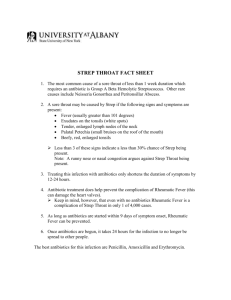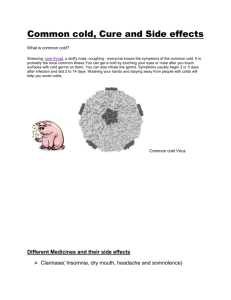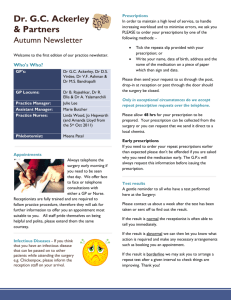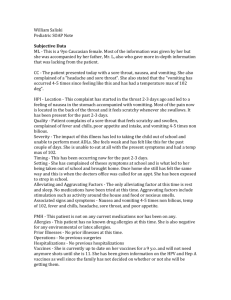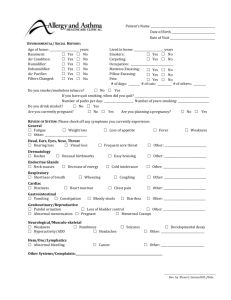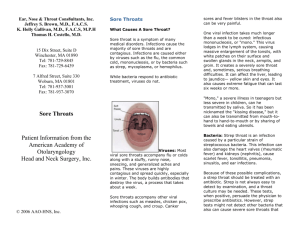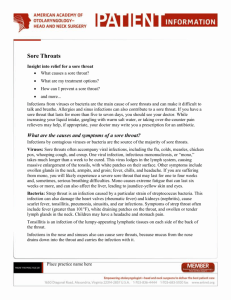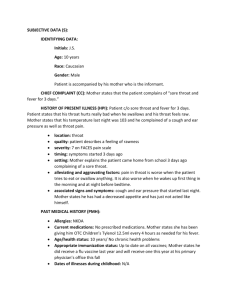Insight into relief for a sore throat
advertisement
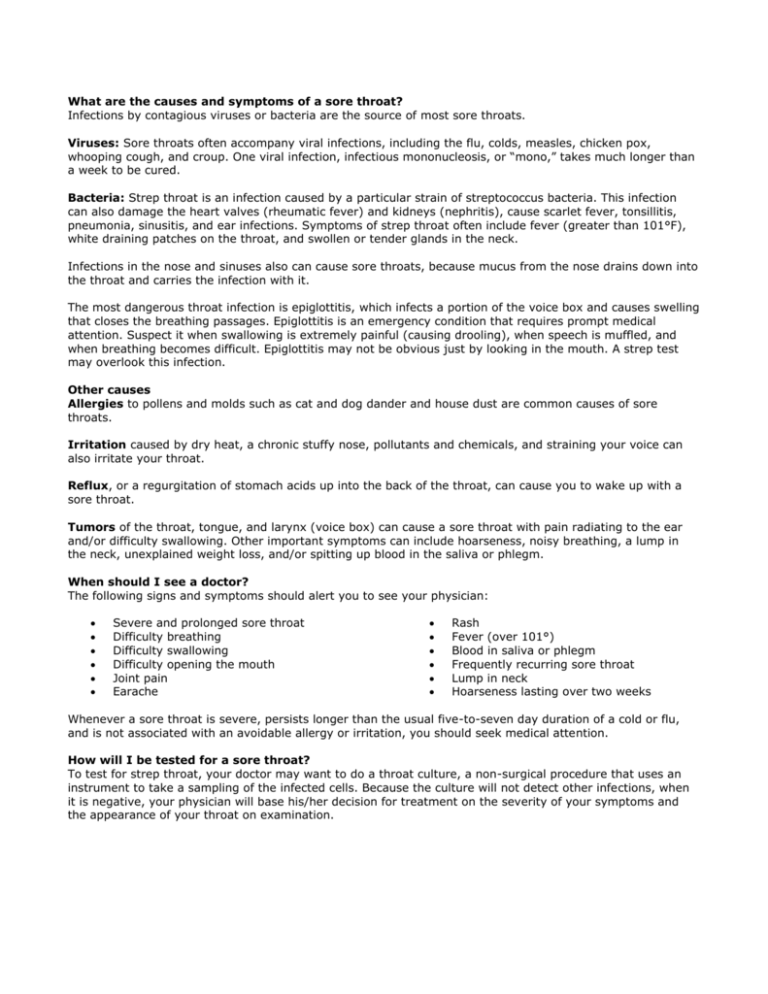
What are the causes and symptoms of a sore throat? Infections by contagious viruses or bacteria are the source of most sore throats. Viruses: Sore throats often accompany viral infections, including the flu, colds, measles, chicken pox, whooping cough, and croup. One viral infection, infectious mononucleosis, or “mono,” takes much longer than a week to be cured. Bacteria: Strep throat is an infection caused by a particular strain of streptococcus bacteria. This infection can also damage the heart valves (rheumatic fever) and kidneys (nephritis), cause scarlet fever, tonsillitis, pneumonia, sinusitis, and ear infections. Symptoms of strep throat often include fever (greater than 101°F), white draining patches on the throat, and swollen or tender glands in the neck. Infections in the nose and sinuses also can cause sore throats, because mucus from the nose drains down into the throat and carries the infection with it. The most dangerous throat infection is epiglottitis, which infects a portion of the voice box and causes swelling that closes the breathing passages. Epiglottitis is an emergency condition that requires prompt medical attention. Suspect it when swallowing is extremely painful (causing drooling), when speech is muffled, and when breathing becomes difficult. Epiglottitis may not be obvious just by looking in the mouth. A strep test may overlook this infection. Other causes Allergies to pollens and molds such as cat and dog dander and house dust are common causes of sore throats. Irritation caused by dry heat, a chronic stuffy nose, pollutants and chemicals, and straining your voice can also irritate your throat. Reflux, or a regurgitation of stomach acids up into the back of the throat, can cause you to wake up with a sore throat. Tumors of the throat, tongue, and larynx (voice box) can cause a sore throat with pain radiating to the ear and/or difficulty swallowing. Other important symptoms can include hoarseness, noisy breathing, a lump in the neck, unexplained weight loss, and/or spitting up blood in the saliva or phlegm. When should I see a doctor? The following signs and symptoms should alert you to see your physician: Severe and prolonged sore throat Difficulty breathing Difficulty swallowing Difficulty opening the mouth Joint pain Earache Rash Fever (over 101°) Blood in saliva or phlegm Frequently recurring sore throat Lump in neck Hoarseness lasting over two weeks Whenever a sore throat is severe, persists longer than the usual five-to-seven day duration of a cold or flu, and is not associated with an avoidable allergy or irritation, you should seek medical attention. How will I be tested for a sore throat? To test for strep throat, your doctor may want to do a throat culture, a non-surgical procedure that uses an instrument to take a sampling of the infected cells. Because the culture will not detect other infections, when it is negative, your physician will base his/her decision for treatment on the severity of your symptoms and the appearance of your throat on examination. What are my treatment options? A mild sore throat associated with cold or flu symptoms can be made more comfortable with the following remedies: Increase your liquid intake. Warm tea with honey is a favorite home remedy. Use a steamer or humidifier in your bedroom. Gargle with warm salt water several times daily: ¼ tsp. salt to ½ cup water. Take over-the-counter pain relievers such as acetaminophen or ibuprofen. If you have a bacterial infection your doctor will prescribe an antibiotic to alleviate your symptoms. Antibiotics are drugs that kill or impair bacteria. Antibiotics do not cure viral infections, but viruses do lower the patient’s resistance to bacterial infections. When such a combined infection occurs, antibiotics may be recommended. When an antibiotic is prescribed, it should be taken as the physician directs for the full course (usually 7-10 days). Otherwise the infection may not be completely eliminated, and could return. Some children will experience recurrent infection despite antibiotic treatment. When some of these are strep infections or are severe, your child may be a candidate for a tonsillectomy. How can I prevent a sore throat? Avoid smoking or exposure to secondhand smoke. If you have seasonal allergies or ongoing allergic reactions to dust, molds, or pet dander, you’re more likely to develop a sore throat. Avoid exposure to chemical irritants. Particulate matter in the air from the burning of fossil fuels, as well as common household chemicals, can cause throat irritation. If you experience chronic or frequent sinus infections you are more likely to experience a sore throat, since drainage from nose or sinus infections can cause throat infections as well. If you live or work in close quarters such as a child care center, classroom, office, prison, or military installation, you are at greater risk because viral and bacterial infections spread easily in environments where people are in close proximity. Maintain good hygiene. Do not share napkins, towels, and utensils with an infected person. Wash your hands regularly with soap or a sanitizing gel, for 10-15 seconds. If you have HIV or diabetes, are undergoing steroid treatment or chemotherapy, are experiencing extreme fatigue or have a poor diet, you have reduced immunity and are more susceptible to infections.
